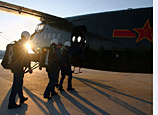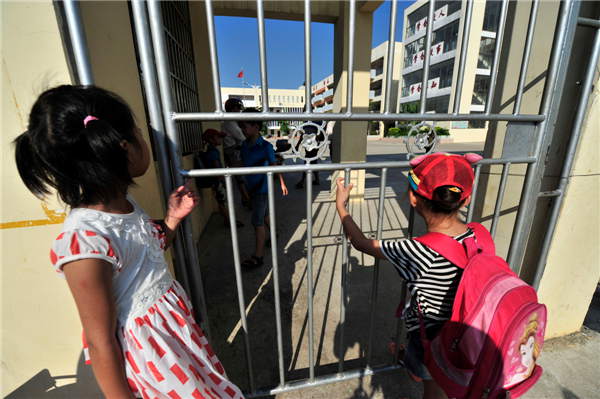
WUHAN, May 16 (Xinhua) -- Chinese scientists expressed their confidence in the commercial application of the BeiDou satellite navigation system (BDS) and called for international cooperation at a forum on Thursday.
Sun Jiadong, chief designer of the BDS and an academician with the Chinese Academy of Sciences, said fusing satellite navigation with information technologies will produce more products based on spatial information and improve people's lives.
Speaking at the Fourth China Satellite Navigation Conference held under the theme "Opportunities and Challenges for the Use of BDS" in Wuhan, capital of central China's Hubei Province, Sun said the application of the BDS goes beyond basic navigation functions and into broader spheres, including water conservancy, forest fire prevention, disaster relief, meteorology, fishing, agriculture and transportation.
At an exhibition highlighting the commercial use of the BDS, a number of consumer goods such as phones and watches were on display, making the technology seem more accessible to the average potential user.
The world's satellite navigation market is currently dominated by four systems, Russia's GLONASS, the United States' GPS, the European Union's Galileo and China's BDS.
Ran Chengqi, director of China's Satellite Navigation System Management Office, said all four systems have their own blind spots. "Cooperation will eliminate the blind spots," he noted.
In China, vehicle navigation terminals based on BDS technology have already been put into experimental commercial use for mass production.
More than 1,000 terminals are currently in use in Jiangsu, Guangdong, Jiangxi and Hunan provinces, according to Ran.
He said more private cars will be equipped with BDS navigation devices in the future.
Liu Jingnan, executive chairman of the conference and an academician with the Chinese Academy of Engineering, said the commercial use of satellite navigation technologies could be worth hundreds of billions of U.S. dollars.
"I am confident and optimistic that more consumer-friendly products will be developed in the future," he said.
Leading experts from the U.S., Europe, Russia and China, among others, have attended the conference held from Wednesday to Friday and exchanged their views on the most recent developments and trends in satellite navigation technologies.
















 Deaths prompt concerns over elevator safety
Deaths prompt concerns over elevator safety


![]()
